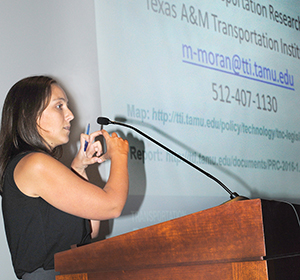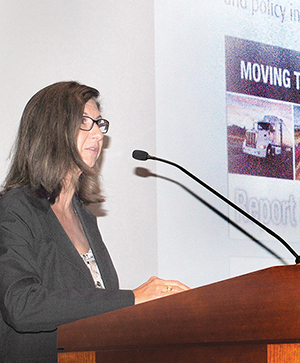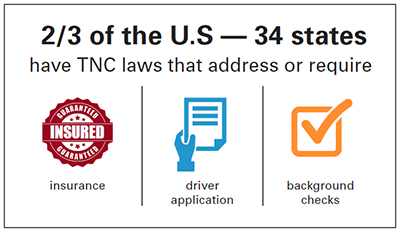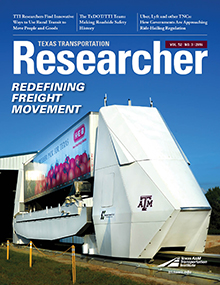When is a technology company not a taxicab company? That question illustrates one of the challenges in regulating transportation network companies (TNCs), the businesses that provide prearranged rides through a digital network, most often via a smartphone app.

Since 2010, those companies have argued that they’re not like traditional taxicab enterprises, and as such, they shouldn’t be regulated in the same way. Opponents argue that TNCs provide the same service as taxicabs, so there’s no justification for holding them to different standards. Caught in the middle are the state and local policy makers whose job it is to determine if regulation is warranted and, if so, write the rules for an industry that’s growing as fast as the use of the technology that enabled it.
As with any effort to implement new regulations, it’s often helpful to begin with a review of what’s been done elsewhere. That’s the purpose behind Policy Implications of Transportation Network Companies, the latest research offering on this topic from the Texas A&M Transportation Institutes’s (TTI’s) Transportation Policy Research Center. The purpose of the research, which was directed by TTI Associate Transportation Researcher Maarit Moran, is to provide Texas leaders with a comprehensive review to help inform the policy decisions addressing the operation of TNCs.
The findings reflect policies in effect as of May 2016, and future installments will provide fresh updates. As of early summer, roughly two-thirds of U.S. states had enacted laws regulating TNCs, reflecting a broad regulatory spectrum.

“We’re seeing a number of commonalities in the state and local regulations for TNCs, and we’re also finding some clear distinctions through our research,” says PRC Director Ginger Goodin. “The regulatory landscape is changing quickly, so helping the policy process along in Texas will require that we keep a very close eye on things as they unfold everywhere else.”
Goodin and Moran described that landscape for members of the Texas House Transportation Committee on August 30, at the invitation of Rep. Joe Pickett, the committee’s chairman. They presented the findings in greater detail at a forum for legislative staff at the Capitol the next day.
“The questions we fielded from legislators during our testimony pointed pretty clearly to the high level of interest they have in TNC regulation,” Moran said. “So we intend to continue our work, knowing it can help to inform the discussions that lawmakers will be having.”
All the 34 states with current TNC laws in some way address insurance, and nearly all require some form of driver application and background checks. TNCs, however, have strongly opposed fingerprinting as part of that requirement.

Most, but not all, of the states require a zero-tolerance drug- and alcohol-use policy for drivers. Only two states and Washington, D.C., require TNCs to provide driver training. Most of the states prohibit TNCs from accepting street hails or any ride solicitation that doesn’t use a TNC app, and about half prohibit TNC drivers from accepting cash payments.
TNC regulation is also taking shape at the local level, though most of the states with laws in place also include a policy that preempts or limits local jurisdictions’ TNC authority. In Texas, 10 cities have passed ordinances between late 2014 and May 2016. Several of those ordinances were passed despite opposition from industry players over policies related to background checks, reporting requirements and vehicle restrictions. In four Texas cities, disputes over the nature of those background checks prompted TNCs Uber and/or Lyft to suspend operations.
Texas lawmakers have signaled their intention to focus on state-level TNC regulation when the legislature convenes for its next Regular Session in January 2017. How they choose to address policy will be informed by the lessons learned from other states and cities.


